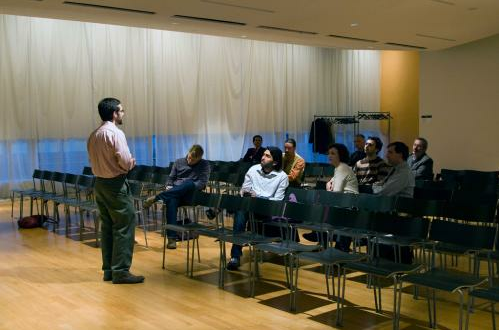When over 100 New School students occupied the old 65 Fifth Ave. building in December 2008, they asked for input into university investment practices. Students feared that with a board of trustees closely tied to one of the nation’s largest defense contractors and without a committee overseeing school investments, The New School’s progressive roots could very well be compromised.

Eleven months after the 30-hour protest, the board of trustees established the Advisory Committee on Investor Responsibility. The committee has reviewed the university’s finances each year since its creation. When members feel that an investment is inconsistent with the school’s social, environmental, or corporate governance values, they send suggestions to the board, which ultimately decides whether or not to revise its policies.
But two and a half years after its inception, the ACIR continues to suffer from waning interest and a lack of student participation. Every current ACIR member – two faculty, two staff, one trustee, and one student – has served on the committee since it was founded in November 2009. The second student representative graduated last year, and despite ongoing efforts to find a replacement, the position remains vacant.
“Whether the ACIR gets a fresh breeze in its sails depends on whether students actually care about where their money is invested,” NSSR student Chris Crews, the committee’s sole student representative, told the Free Press in an email. “That is a question I cannot answer.”
This is not the program’s first case of low student involvement. In October 2010, only about a dozen people attended an ACIR-sponsored open forum in Wollman Hall.
Initial concern for university investment practices developed after faculty and students learned that now-former board of trustees member Robert Millard had also served on the board of L3 Communications, the nation’s sixth-largest defense contractor. Students and faculty suggested that The New School cut ties with Millard and companies like L3, and invest more heavily on human rights-based ventures.
The ACIR is part of the Responsible Endowments Coalition, a nationwide council comprising 40 university committees promoting socially conscious investment practices.
“Universities have a lot of money,” Dan Apfel, executive director of the REC, said at a national conference at Wollman Hall in February 2011. “If [they] take their mission and their values into account when making investment decisions, they can be better corporate citizens.”
As the academic year draws to a close, ACIR members said that the body will continue its efforts to boost student participation. New School professor and ACIR co-chair Terra Lawson-Remer told the Free Press that students do care about the university’s investments, but have been distracted in a year filled with protests and occupations.







Leave a Reply